
Akosombo: The Jewel of Ghana's Eastern Region
Nestled in the heart of Ghana's Eastern Region, Akosombo is a serene town known for its lush landscapes and the magnificent Volta River. The town’s most famous landmark is the Akosombo Dam, an impressive engineering feat that created Lake Volta, one of the largest man-made lakes in the world. Visitors can take guided tours of the dam to learn about its history and significance to Ghana's economy and energy supply. Akosombo is also a gateway to numerous outdoor activities. The Volta River offers ample opportunities for water sports, including kayaking, sailing, and fishing. For those who prefer to stay on land, the surrounding hills provide excellent trails for hiking and bird-watching. As you explore, you'll be treated to breathtaking views of the lake and the lush, green landscape that stretches as far as the eye can see. The town itself is charming, with a relaxed atmosphere that makes it a perfect getaway from the hustle and bustle of city life. Local markets offer a variety of fresh produce and handmade crafts, giving you a taste of the local culture. The people of Akosombo are warm and welcoming, always ready to share stories about their town's rich history and traditions.
Local tips in Akosombo
- Visit the Akosombo Dam early in the morning to avoid the crowds and enjoy the best views.
- Pack comfortable hiking shoes for exploring the trails around the Volta River.
- Bring insect repellent for outdoor activities, especially near the water.
- Local markets are best visited in the morning for the freshest produce and unique handmade crafts.
- Consider hiring a local guide to enhance your experience with insider knowledge and historical context.
Akosombo: The Jewel of Ghana's Eastern Region
Nestled in the heart of Ghana's Eastern Region, Akosombo is a serene town known for its lush landscapes and the magnificent Volta River. The town’s most famous landmark is the Akosombo Dam, an impressive engineering feat that created Lake Volta, one of the largest man-made lakes in the world. Visitors can take guided tours of the dam to learn about its history and significance to Ghana's economy and energy supply. Akosombo is also a gateway to numerous outdoor activities. The Volta River offers ample opportunities for water sports, including kayaking, sailing, and fishing. For those who prefer to stay on land, the surrounding hills provide excellent trails for hiking and bird-watching. As you explore, you'll be treated to breathtaking views of the lake and the lush, green landscape that stretches as far as the eye can see. The town itself is charming, with a relaxed atmosphere that makes it a perfect getaway from the hustle and bustle of city life. Local markets offer a variety of fresh produce and handmade crafts, giving you a taste of the local culture. The people of Akosombo are warm and welcoming, always ready to share stories about their town's rich history and traditions.
When is the best time to go to Akosombo?
Iconic landmarks you can’t miss
The Royal Senchi Hotel and Resort
Experience unparalleled luxury and serenity on the Volta River at The Royal Senchi Hotel and Resort, Ghana's premier destination for relaxation, adventure, and unforgettable memories.
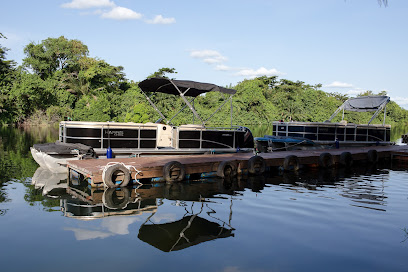
Volta Hotel Akosombo
Discover a serene getaway at Volta Hotel Akosombo, where luxury meets nature along the stunning Volta River in Ghana's Eastern region.
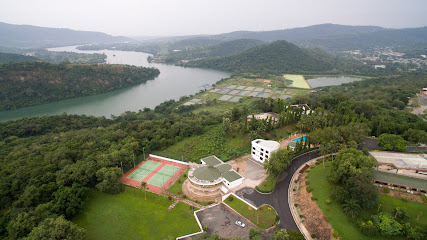
AFRIKIKO RIVER FRONT RESORT
Experience the tranquil beauty of Afrikiko River Front Resort, a serene getaway along the stunning Volta River in Akosombo, Ghana.

BridgeView Resort
Escape to BridgeView Resort in Akosombo for breathtaking lake views, luxurious amenities, and unforgettable experiences in Ghana's stunning Eastern Region, just 90 minutes from Accra.
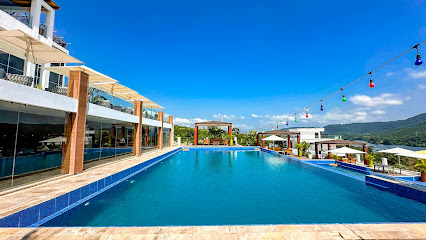
Boti Waterfalls
Discover the enchanting Boti Waterfalls in Ghana's Eastern Region: a twin cascade, lush forest, and cultural gem offering a refreshing escape and unforgettable adventure.
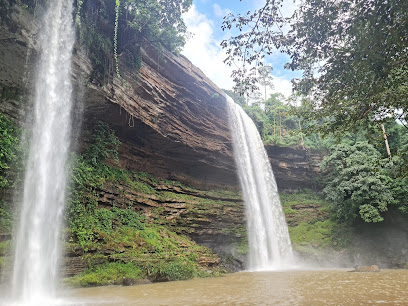
Akosombo Continental Hotel
Experience the blend of comfort and culture at Akosombo Continental Hotel, your gateway to the scenic beauty of Ghana.

Aylos Bay Garden Restaurant & Lodge
Discover the tranquil beauty of Aylos Bay Garden Restaurant & Lodge, a serene retreat by the Volta River, perfect for relaxation and delicious dining.

Adi Lake Resort
Discover tranquility and adventure at Adi Lake Resort, your perfect getaway on the beautiful shores of Lake Volta, Ghana.

Dodi World Akosombo (Dodi Princess,Dodi Island,Boat Cruise)
Experience Ghana's unique aqua-tourism destination at Dodi World Akosombo: Cruise to Dodi Island on Lake Volta, enjoy live music, savor local cuisine, and immerse yourself in nature and culture.
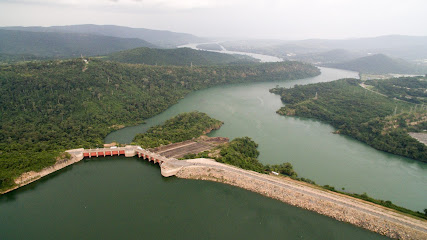
Maritime Club House
Experience exquisite lakeside dining at Maritime Club House in Akosombo, Ghana, where local and international flavors meet breathtaking views of the Volta River for an unforgettable culinary journey.
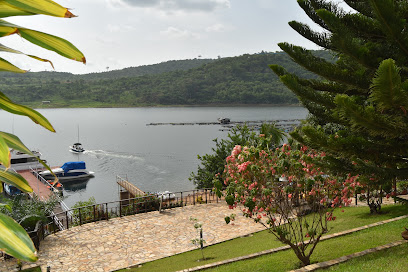
Umbrella Rock
Explore the breathtaking beauty of Umbrella Rock, a stunning natural landmark in Asiafo Amanfro, Ghana, perfect for adventure and photography.
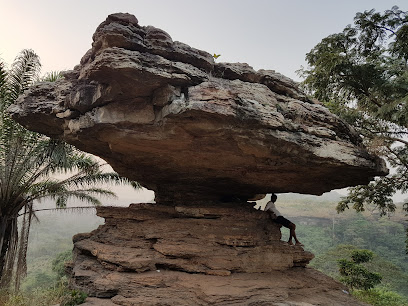
3As Guest House
Experience the warmth of Ghanaian hospitality at 3As Guest House, your tranquil retreat in Akosombo near stunning natural landscapes.
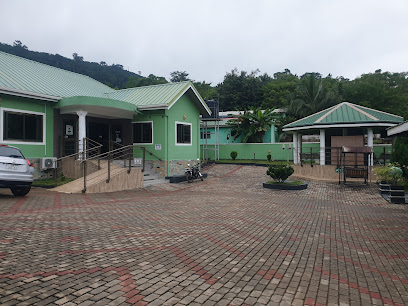
Odo So Royal Hotel
Experience comfort and convenience at Odo So Royal Hotel in Akosombo, Ghana, offering modern amenities and easy access to local attractions like the Akosombo Dam and Lake Volta.
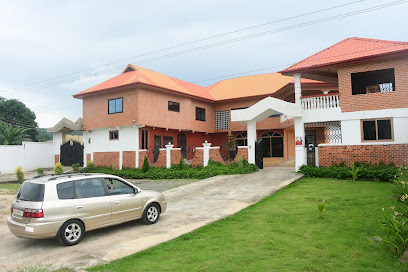
Panaasa GuestHouse
Experience comfort and tranquility at Panaasa GuestHouse in Akosombo, Ghana, offering scenic views and a convenient location for exploring local attractions and natural wonders.
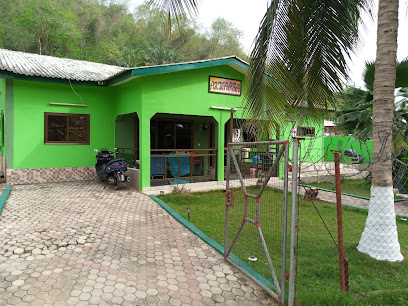
Akosombo Dam
Discover the awe-inspiring Akosombo Dam, a hydroelectric marvel offering stunning views and insights into Ghana's sustainable energy production.
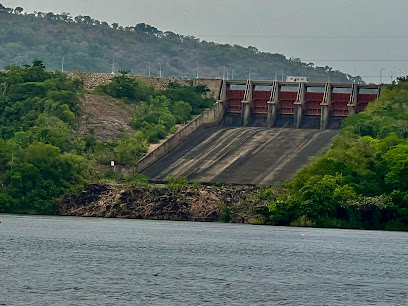
Unmissable attractions to see
Bunso Arboretum
Discover the natural beauty of Ghana at Bunso Arboretum, a tranquil haven for nature enthusiasts and tourists.
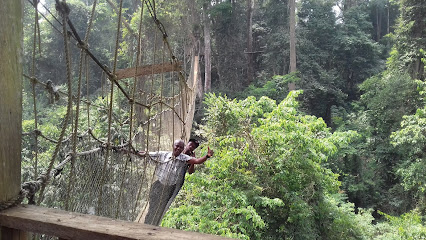
Krobo Hills
Discover the stunning beauty of Krobo Hills, a top hiking destination in Ghana offering lush landscapes and an unforgettable outdoor adventure.

Akosombo -Marine
Experience the serene beauty of Akosombo Marine, a stunning cottage village on the banks of the Volta River, perfect for relaxation and adventure.
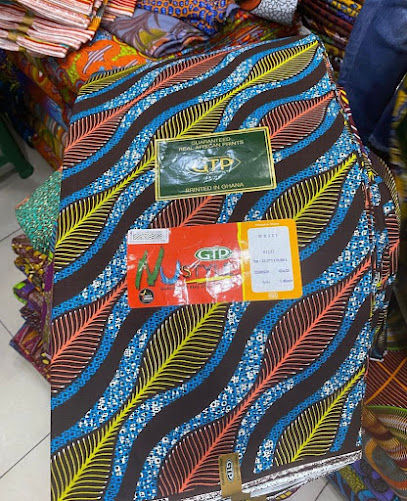
AtakwameRiverIslandJungleClub
Experience the serene beauty and vibrant nature at Atakwame River Island Jungle Club in Juapong, Ghana, a perfect escape for all nature lovers.
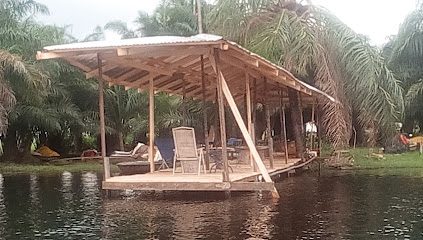
Trident Hiking Peak South
Explore Trident Hiking Peak South, a stunning hiking area in Akwamufie, offering breathtaking views and diverse trails for all adventure seekers.
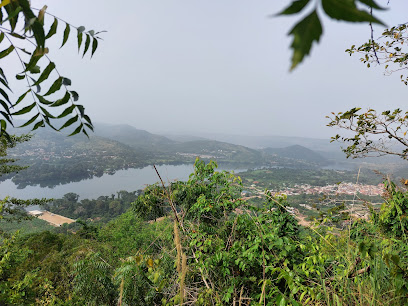
Krobo Cross
Explore Krobo Cross in Ghana, where stunning landscapes meet rich cultural heritage and vibrant local traditions invite you to experience the essence of the Krobo people.

Essential places to dine
The Royal Senchi Hotel and Resort
Discover luxury and relaxation at The Royal Senchi Hotel and Resort on the banks of Ghana's picturesque Volta River.
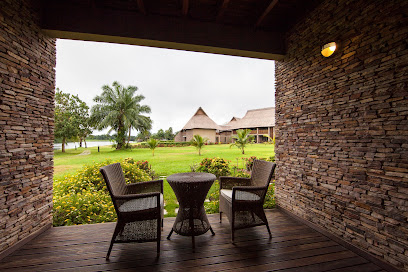
Volta Hotel Akosombo
Experience luxury and adventure at Volta Hotel Akosombo – your gateway to exploring Ghana's stunning landscapes.
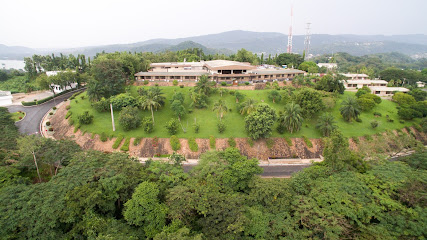
AFRIKIKO RIVER FRONT RESORT
Discover tranquility at Afrikiko River Front Resort – a scenic retreat by the Volta River perfect for relaxation and cultural exploration.

BridgeView Resort
Experience serene luxury at BridgeView Resort near Akosombo Dam, where nature meets comfort in beautiful Ghana.
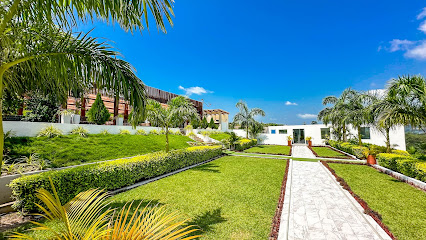
Akosombo Continental Hotel
Discover comfort and adventure at Akosombo Continental Hotel, your gateway to Ghana's scenic beauty along the Volta River.

Aylos Bay Garden Restaurant & Lodge
Discover tranquility at Aylos Bay Garden Restaurant & Lodge – where delicious cuisine meets breathtaking views along the Volta River.

Ricky's Grills&Fries
Experience the best grilled dishes in Akosombo at Ricky's Grills&Fries - where flavor meets comfort in every bite.
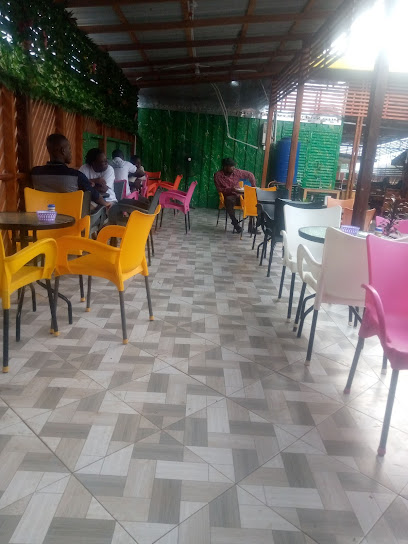
Adi Lake Resort
Discover tranquility and adventure at Adi Lake Resort - your perfect escape by the serene waters of Ghana.

Dodi World Akosombo (Dodi Princess,Dodi Island,Boat Cruise)
Experience adventure and tranquility at Dodi World Akosombo with scenic boat cruises and exquisite dining by Lake Volta.
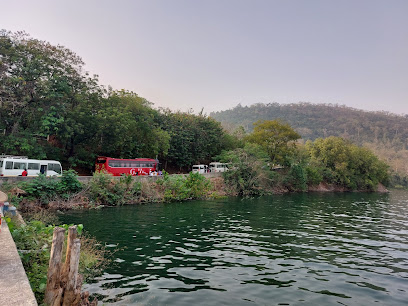
Maritime Club House
Experience culinary delights at Maritime Club House, where local flavors meet stunning views in Akosombo's vibrant dining scene.
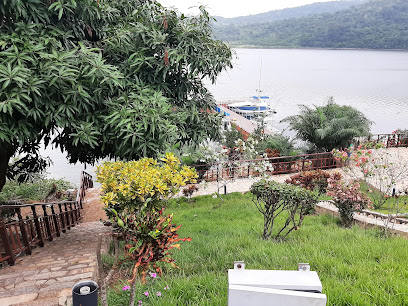
The FLOAT
Discover luxury and relaxation at The FLOAT in Akosombo - your ultimate resort getaway by Lake Volta.
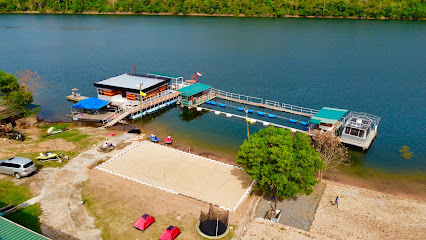
3As Guest House
Discover tranquility and local charm at 3As Guest House in Akosombo, your perfect base for exploring Ghana's natural wonders.
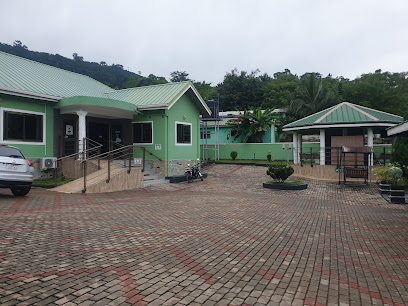
Stejoy Restaurant
Discover the flavors of Akosombo at Stejoy Restaurant – where Chinese cuisine meets fast food delight in an inviting atmosphere.
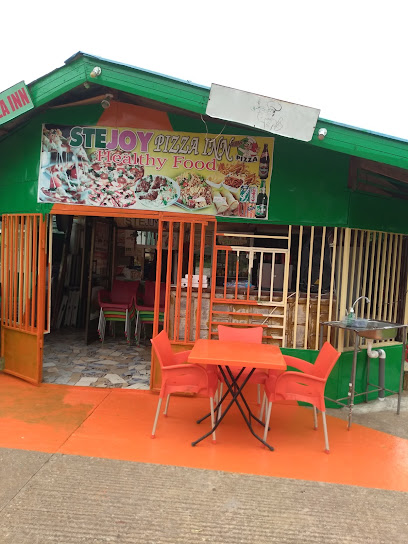
Hi-Haven Hotel
Experience the tranquility and beauty of Akosombo at Hi-Haven Hotel – your perfect getaway destination in Ghana.
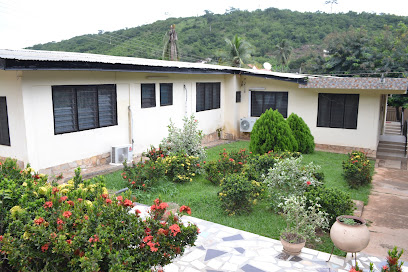
Zito Guest Inn
Experience comfort and local charm at Zito Guest Inn in Akosombo – your gateway to exploring Ghana's stunning Volta Region.
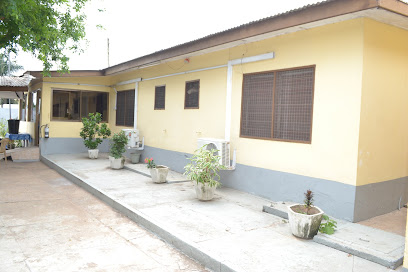
Markets, malls and hidden boutiques
Akwamu-Akosombo Market
Experience the vibrant local culture at Akwamu-Akosombo Market, a bustling hub filled with fresh produce, handcrafted goods, and authentic Ghanaian flavors.
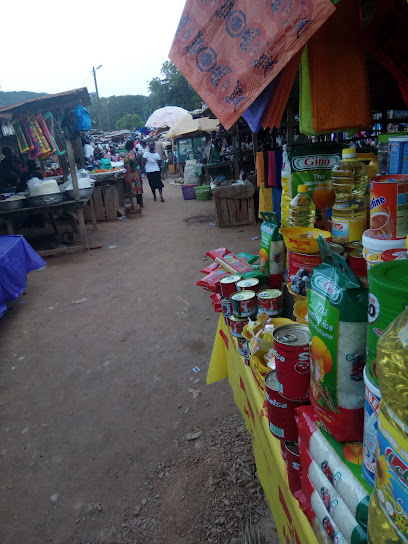
E&E Supermarket
Explore E&E Supermarket in Akosombo for an authentic shopping experience with local products and Ghanaian delicacies.
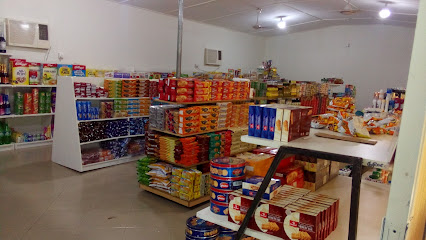
E N E Supermarket
Discover local flavors and essentials at E N E Supermarket in Akosombo, your go-to grocery store for all your travel needs.

Busy Bee
Explore Busy Bee in Akosombo for unique home goods, local treasures, and a welcoming shopping atmosphere that celebrates Ghanaian culture.

Indysam Enterprise
Indysam Enterprise: Your local grocery destination in Akosombo offering fresh produce and a wide selection of alcoholic beverages.
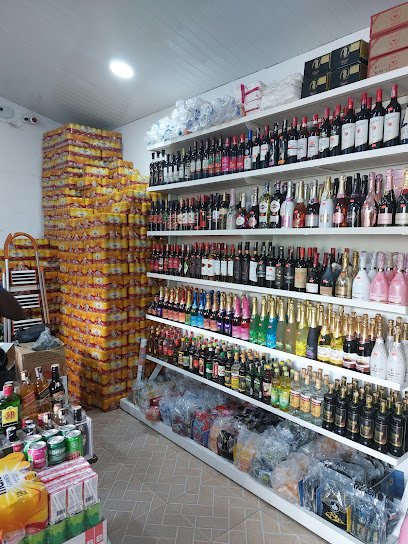
MI MARG VENTURES
Explore unique local crafts and essentials at MI MARG VENTURES, a charming home goods store in Akosombo, Ghana.

UNIQUE ZONE
Discover cutting-edge mobile technology and accessories at Unique Zone, Akosombo's premier cell phone store for tech enthusiasts.
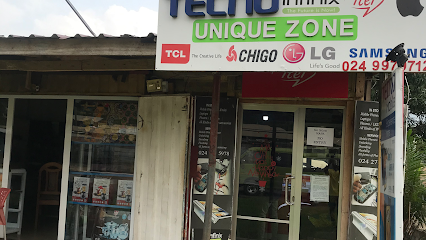
Interior By Tina
Discover the charm of Ghanaian craftsmanship at Interior By Tina, your go-to destination for unique furniture and home decor in Akosombo.
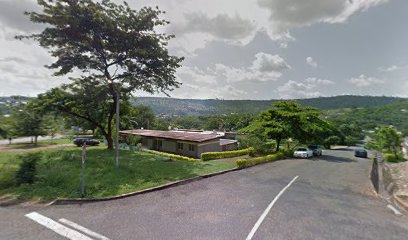
Bangles Hair Salon
Explore vibrant fashion at Bangles Hair Salon in Akosombo, where local style meets exceptional service in a welcoming atmosphere.
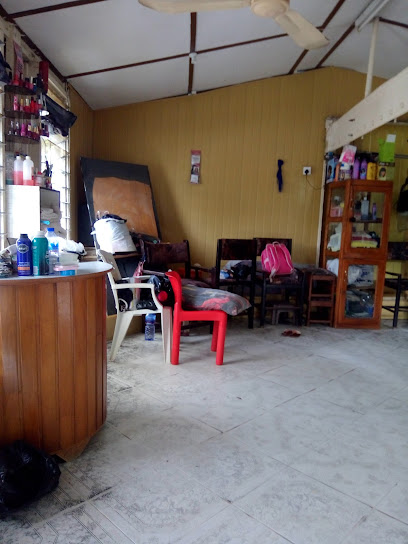
Averie's Kids & More
Explore stylish children's clothing at Averie's Kids & More in Akosombo, where fashion meets fun for the little ones.
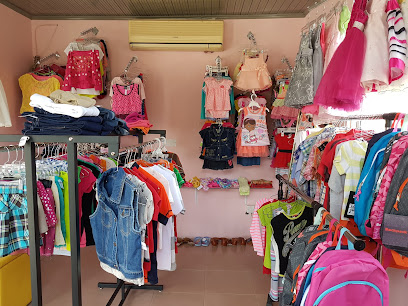
SGD Ghana Ltd.
Explore unique fashion at SGD Ghana Ltd. in Akosombo, where local charm meets contemporary style for an unforgettable shopping experience.

LUREY VENTURES
Explore Lurey Ventures in Akosombo for unique home goods and authentic local crafts that capture the essence of Ghanaian culture.
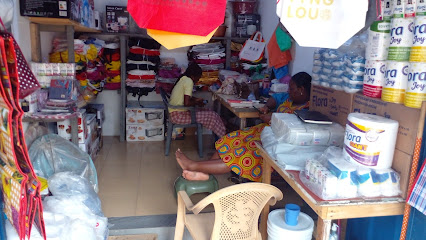
Mommy's Choice
Explore Mommy's Choice in Akosombo for the latest trends in children's fashion and enjoy a delightful shopping experience for your little ones.

Fufu Machine
Experience the rich flavors of Ghana at Fufu Machine, a must-visit culinary destination in Akosombo for authentic fufu and local dishes.

sarvida bonwire kente
Discover the rich heritage of Ghana through exquisite Kente fabrics at Sarvida Bonwire Kente in Akosombo, a unique cultural experience for every traveler.

Essential bars & hidden hideouts
Stejoy Restaurant
Experience a delightful mix of Chinese, fast food, and pizza at Stejoy Restaurant in Akosombo, Ghana - a culinary gem for every traveler.
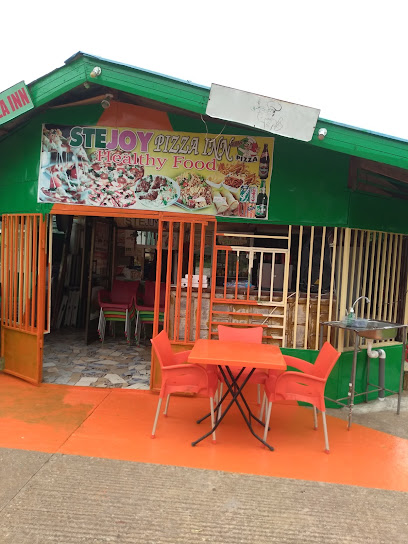
Gizzard Park
Experience the rich flavors of Ghana at Gizzard Park in Akosombo, where culinary excellence meets breathtaking views.
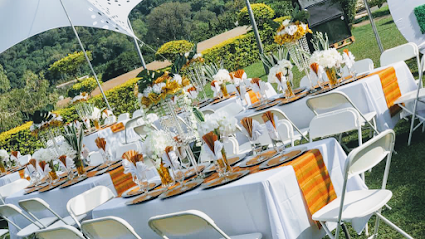
Hollywood Cafe
Discover the flavors of Ghana at Hollywood Cafe in Akosombo, where local dishes meet international delights in a cozy atmosphere.
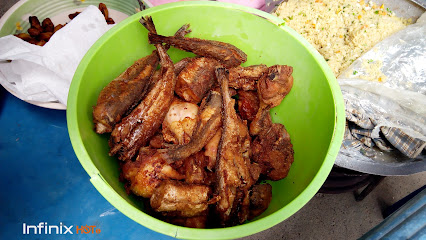
Top Choice Restaurant
Discover the rich flavors of African cuisine at Top Choice Restaurant in Akosombo, where every dish tells a story of tradition and taste.
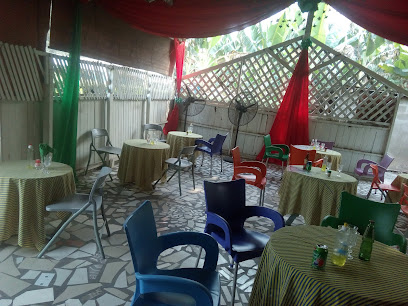
Club House (VRA)
Discover serenity at Club House (VRA) in Akosombo, where relaxation meets delightful cuisine amidst stunning river views.
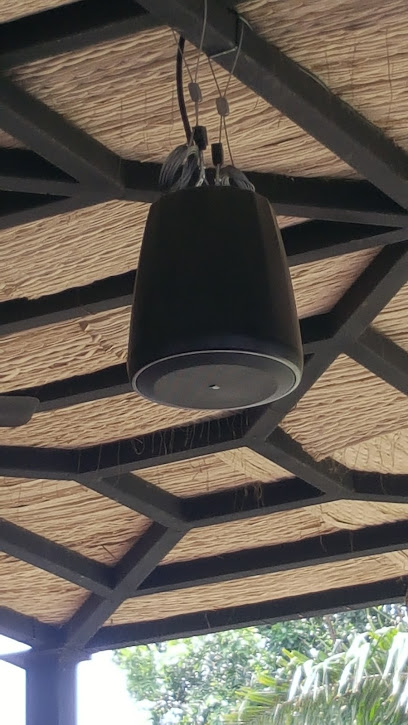
Club Casanova Sport
Immerse yourself in Accra's nightlife at Club Casanova Sport, where vibrant energy meets local culture in a spacious bar setting.
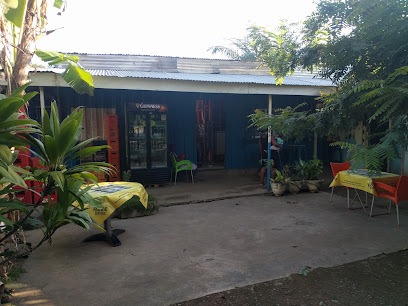
Jamrok Bar and Event Centre
Discover the vibrant nightlife and welcoming atmosphere at Jamrok Bar and Event Centre, the perfect spot for relaxation and entertainment in N2.
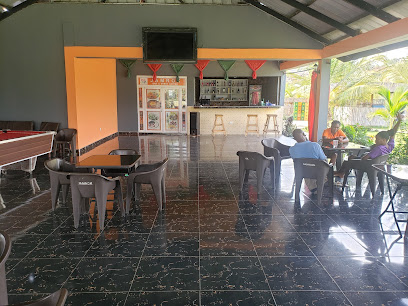
Fun City
Discover the lively atmosphere and local culture at Fun City, a premier bar in Akosombo, perfect for unwinding and enjoying Ghana's nightlife.
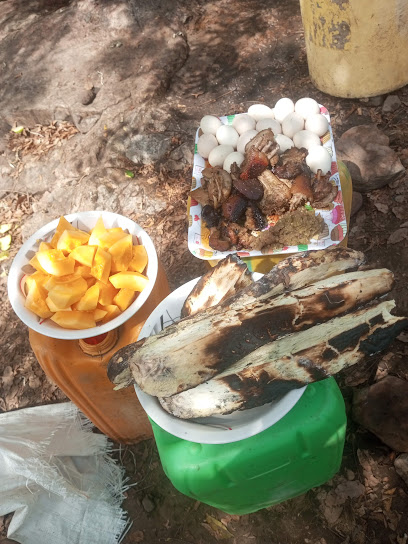
Alabama Pub & Grill
Experience the lively charm of Alabama Pub & Grill in Atimpoku, where delicious food and vibrant entertainment await every visitor.
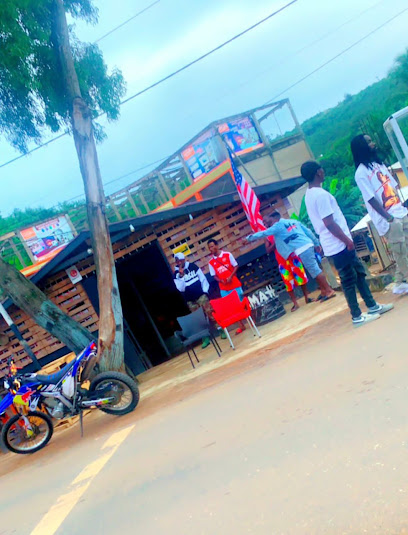
Sweet Mother Chop Bar
Discover authentic Ghanaian cuisine at Sweet Mother Chop Bar in Akosombo, where every dish is a celebration of local flavors and culture.
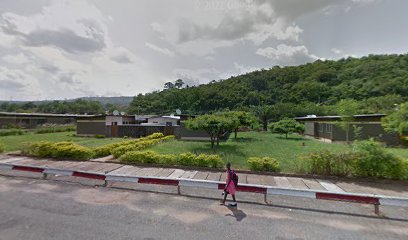
LEGACY LOUNGE &PUB
Discover the vibrant nightlife at Legacy Lounge & Pub in Atimpoku, where great drinks and a lively atmosphere await every visitor.
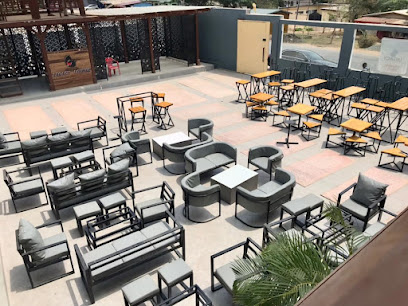
Leggers Bar
Experience the vibrant nightlife at Leggers Bar in Akosombo, the perfect spot for drinks and socializing with locals.
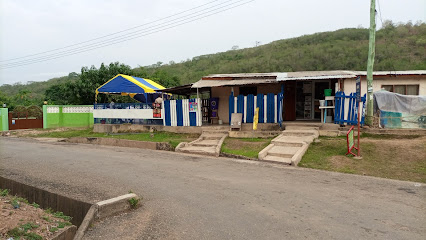
Grill and Hot - Akosombo
Discover the best grilled delights in Akosombo at Grill and Hot, where local flavors meet a welcoming atmosphere for an unforgettable dining experience.

SUMMERS SPOT
Discover the flavors of Ghana at Summers Spot, Akosombo's premier grill restaurant offering a delightful culinary experience in a warm atmosphere.
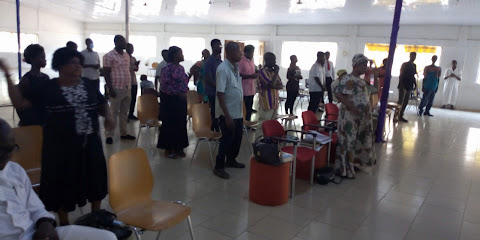
Kenkey House
Savor the authentic taste of Ghana at Kenkey House, your go-to brunch destination in Akosombo.
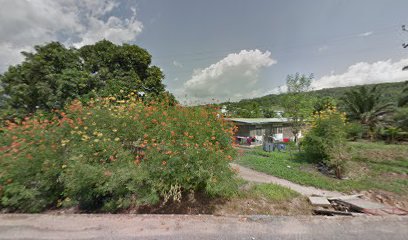
Local Phrases about Akosombo
-
- HelloAane
[ah-neh] - GoodbyeDaabi
[dah-bee] - YesEe
[ee] - NoDabi
[dah-bee] - Please/You're welcomeMesrɛ
[meh-sreh] - Thank youMedaase
[meh-dah-see] - Excuse me/SorryKɛlɔ
[keh-loh] - How are you?Wo ho te sɛn?
[woh hoh teh sen] - Fine. And you?Adɛn. Na wo ho?
[ah-den. nah woh hoh] - Do you speak English?Wo ka Twi?
[woh kah t-wee] - I don't understandM'ani agye
[mah-nee ah-jeh]
- HelloAane
-
- I'd like to see the menu, pleaseM'ani akɔ menu, mesrɛ
[mah-nee ah-koh meh-noo, meh-sreh] - I don't eat meatM'ani ntanta atade
[mah-nee n-tahn-tah ah-tah-deh] - Cheers!Afehyia pa
[ah-feh-hee-yah pah] - I would like to pay, pleaseM'ani bɔ dɛ, mesrɛ
[mah-nee boh deh, meh-sreh]
- I'd like to see the menu, pleaseM'ani akɔ menu, mesrɛ
-
- Help!Bo m'ani!
[boh mah-nee] - Go away!Kɔ hwɛ!
[koh hweh] - Call the Police!Kyerɛ polis!
[ch-yeah poh-lees] - Call a doctor!Kyerɛ dokita!
[ch-yeah doh-kee-tah] - I'm lostM'ani dɔe
[mah-nee doh-eh] - I'm illM'ani nsa
[mah-nee en-sah]
- Help!Bo m'ani!
-
- I'd like to buy...M'ani hwee...
[mah-nee hway] - I'm just lookingM'ani kɔkɔɔ
[mah-nee koh-koh] - How much is it?Ɛyɛ sɛn?
[eh-yeh sen] - That's too expensiveƆyɛ dɛdɛw
[oh-yeh deh-deh-woo] - Can you lower the price?Wopɛ ntam
[woh-peh en-tahm]
- I'd like to buy...M'ani hwee...
-
- What time is it?Nnɛkɔ sɛn?
[n-neh-koh sen] - It's one o'clockƐkɔn aduonu
[eh-koh-n ah-dwoh-noo] - Half past (10)Aduonu a ayɔn
[ah-dwoh-noo ah ah-yohn] - MorningAnwummere
[ahn-woo-meh-reh] - AfternoonAwia
[ah-wee-yah] - EveningAnadwo
[ahn-ah-dwoh] - YesterdayNnɛkɔ
[n-neh-koh] - TodayƐnnora
[ehn-noh-rah] - TomorrowƐnnora mu
[ehn-noh-rah moo] - 1Kɔtɔ
[koh-toh] - 2Ba
[bah] - 3Nsa
[en-sah] - 4Nnɛ
[n-neh] - 5Nnɛna
[n-neh-nah] - 6Nsia
[en-shah] - 7Ntorɔ
[en-toh-roh] - 8Ntorɔnɔ
[en-toh-roh-noh] - 9Krononɔ
[kroh-noh-noh] - 10Krono
[kroh-noh]
- What time is it?Nnɛkɔ sɛn?
-
- Where's a/the...?Ewee...
[eh-weh] - What's the address?Adres sɛn?
[ah-dreh sen] - Can you show me (on the map)?Wopɛ kyerɛ me (atɔ map)
[woh-peh ch-yeah-reh meh (ah-toh map)] - When's the next (bus)?Ɛkɔn...
[eh-kohn] - A ticket (to ....)Tikɛt (kɔ ....)
[tee-keht (koh ....)]
- Where's a/the...?Ewee...
History of Akosombo
-
Akosombo, a town located in the Eastern Region of Ghana, has its roots deeply entrenched in the natural landscape of the Volta River. Prior to the 1960s, this area was predominantly occupied by small rural communities engaged in agriculture and fishing. The serene environment and fertile lands made it an ideal location for the indigenous people who depended heavily on the river for their livelihood.
-
The most transformative event in Akosombo’s history is undoubtedly the construction of the Akosombo Dam. Initiated in 1961 and completed in 1965, the dam was built to provide hydroelectric power to Ghana and its neighboring countries. The project was a monumental engineering feat and involved collaboration between the Ghanaian government and international partners, including the World Bank. The dam’s completion led to the creation of Lake Volta, one of the largest man-made lakes in the world, which submerged several villages and displaced many residents.
-
The creation of Lake Volta drastically altered the lives of the local communities. While the dam brought electricity and development opportunities, it also led to the displacement of approximately 80,000 people. These individuals were relocated to new settlements, and the government undertook efforts to provide them with housing and social amenities. The resettlement process was complex and had lasting effects on the social fabric of the region.
-
The establishment of the Akosombo Dam marked the beginning of significant economic changes. The hydroelectric power generated by the dam spurred industrial growth and urbanization in Ghana. Akosombo itself transformed from a small rural area into a bustling town with improved infrastructure, including schools, hospitals, and roads. The presence of the dam also attracted tourism, with visitors eager to witness the engineering marvel and the scenic beauty of Lake Volta.
-
Despite the disruptions caused by the dam’s construction, the local communities have shown remarkable resilience. Traditional practices and cultural heritage continue to thrive in Akosombo. The people have adapted to their new environments while maintaining their customs, festivals, and community bonds. The annual Asafotu-Fiam Festival, celebrated by the Ada people, is a testament to the enduring cultural vibrancy of the region.
-
The creation of Lake Volta significantly altered the local ecosystem. The vast water body has become a habitat for various aquatic species and supports a thriving fishing industry. However, the dam also brought challenges, such as changes in water flow and sedimentation patterns, which have impacted agriculture and natural habitats. Ongoing environmental management efforts aim to balance the benefits of the dam with the need to preserve the region’s ecological health.
-
Today, Akosombo is a blend of historical legacy and modern development. The town is a key tourist destination, offering attractions such as boat tours on Lake Volta, the Akosombo Dam itself, and nearby natural reserves. It also serves as a reminder of the profound changes brought by the dam project and stands as a symbol of Ghana’s journey towards modernization and economic growth.
Akosombo Essentials
-
Akosombo is located in the Eastern Region of Ghana, approximately 100 kilometers from the capital city, Accra. The nearest international airport is Kotoka International Airport in Accra. From Accra, you can travel by road to Akosombo via private car, taxi, or bus. The journey typically takes around 2 to 3 hours. Several bus companies operate routes from Accra to Akosombo, and private hire vehicles can be arranged for a more comfortable and direct journey.
-
Once in Akosombo, transportation options include taxis, motorbikes, and local buses (trotros). Taxis are readily available and can be hailed on the street or arranged through your accommodation. Trotros are shared minibuses that are a cost-effective way to travel around, though they can be crowded. Motorbikes are also a popular mode of transport for shorter distances. If you prefer to explore at your own pace, car rentals are available, though driving can be challenging due to varying road conditions.
-
The official currency in Ghana is the Ghanaian Cedi (GHS). Credit cards are accepted in some hotels, restaurants, and larger shops, but it is advisable to carry cash, especially in smaller establishments and rural areas. ATMs are available in Akosombo, but it is wise to withdraw sufficient cash in Accra before traveling to ensure you have enough funds. Mobile money services are also widely used and accepted for transactions.
-
Akosombo is generally considered a safe destination for tourists. However, it is advisable to take standard precautions. Avoid walking alone at night in unfamiliar areas and keep an eye on your belongings in crowded places. While Akosombo does not have specific high-crime areas targeting tourists, it is always best to stay vigilant and aware of your surroundings. Engage with local guides for a safer and more informed experience.
-
In case of emergency, dial 191 for police assistance or 193 for medical emergencies. Akosombo has a local police station and medical facilities, including the Akosombo Hospital. It is recommended to have travel insurance that covers medical emergencies. For minor health issues, there are pharmacies in the town where you can purchase over-the-counter medications. Ensure you have the contact information for your country's embassy or consulate in Ghana.
-
Fashion: Do dress modestly, especially when visiting religious sites. Avoid wearing revealing clothing. Religion: Do respect local customs and traditions. When visiting churches or mosques, dress conservatively and remove your shoes when required. Public Transport: Do be respectful and give up your seat to elderly passengers. Don’t eat or drink on public transport. Greetings: Do greet people with a handshake or a friendly 'akwaba' (welcome). A slight bow of the head is also a sign of respect. Eating & Drinking: Do try local delicacies and accept food offerings graciously. Don’t refuse hospitality, as it is considered impolite.
-
To experience Akosombo like a local, visit the local markets where you can buy fresh produce and traditional Ghanaian goods. Engage with locals, as they are often friendly and willing to share stories about the town’s history and culture. Don’t miss a boat ride on the Volta River to enjoy the scenic views and visit the Akosombo Dam, one of Ghana's most significant engineering feats. For a unique experience, take a guided tour of the nearby Shai Hills Resource Reserve, which offers opportunities for hiking and wildlife viewing.
Trending Landmarks in Akosombo
-
The Royal Senchi Hotel and Resort
-
Volta Hotel Akosombo
-
AFRIKIKO RIVER FRONT RESORT
-
BridgeView Resort
-
Boti Waterfalls
-
Akosombo Continental Hotel
-
Aylos Bay Garden Restaurant & Lodge
-
Adi Lake Resort
-
Dodi World Akosombo (Dodi Princess,Dodi Island,Boat Cruise)
-
Maritime Club House
-
Umbrella Rock
-
3As Guest House
-
Odo So Royal Hotel
-
Panaasa GuestHouse
-
Akosombo Dam
Nearby Cities to Akosombo
-
Things To Do in Ho
-
Things To Do in Accra
-
Things To Do in Kpalimé
-
Things To Do in Lomé
-
Things To Do in Notse
-
Things To Do in Aneho
-
Things To Do in Atakpamé
-
Things To Do in Kumasi
-
Things To Do in Lokossa
-
Things To Do in Cape Coast
-
Things To Do in Ouidah
-
Things To Do in Sekondi-Takoradi
-
Things To Do in Takoradi
-
Things To Do in Cotonou
-
Things To Do in Porto-Novo








